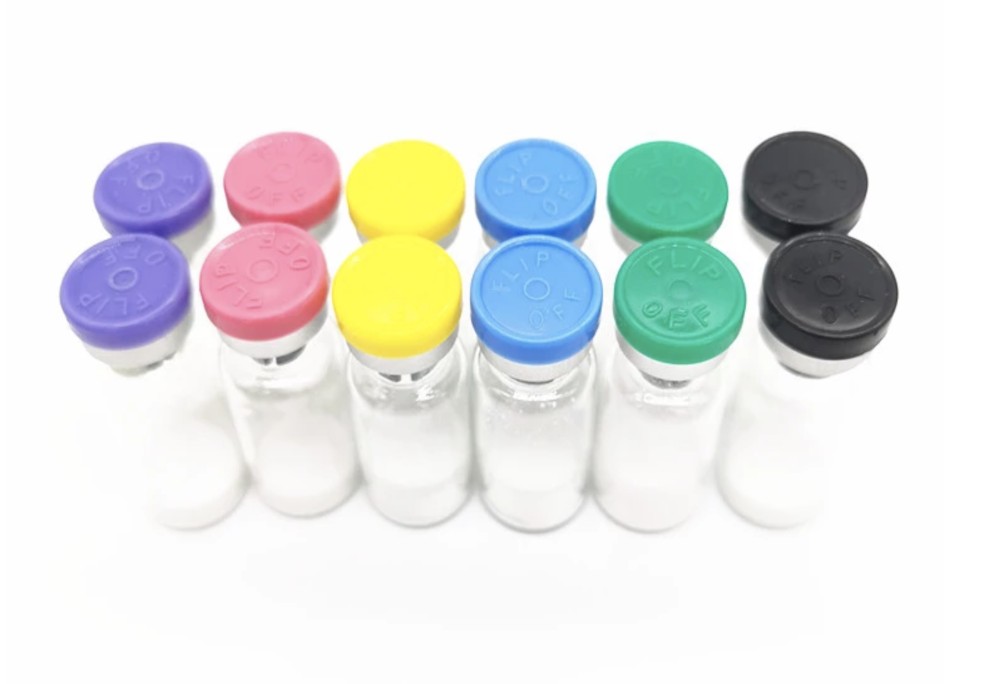bivalirudín
Sekvencia:D-Phe-Pro-Arg-Pro-Gly-Gly-Gly-Gly-Asn-Gly-Asp-Phe-Glu-Glu-Ile-Pro-Glu-Glu-Tyr-Leu-OH
Alias:126:PN:W02004076484PAGE:31 nárokovaný proteín;Angiomax;BG 8967;bivalirudín;Hirulog; Hirulog 1
Cas č.: 128270-60-0
Molekulárny vzorec: C98H138N24O33
Molekulová hmotnosť: 2180.29
Čistota (HPLC): 98.0%min.
Vzhľad: Biely prášok
Jediná nečistota (HPLC): 1.0%max
Aminokyselinové zloženie: ±10 % teoretickej hodnoty
Obsah peptidov (N %): >80.0%
Obsah vody (Karl Fischer): <8.0%
Obsah trifluóracetátu(HPIC): >12.0%
PANI (ESI): Konzistentné
Hmotnostná bilancia: 95.0~105,0 %
stupňa : Farmaceutická trieda
Skladovanie: ZATVORENÉ, nižšie 2 ~ 8 ℃ konzervácia
Použitie : Tento produkt sa používa hlavne na prevenciu vaskulárnej intervenčnej terapie pri liečbe nestabilnej angíny pectoris, ischemické komplikácie pred a po. Inhibuje cirkulujúci aj zrazeninu viazaný trombín, pričom tiež inhibuje trombínom sprostredkovanú aktiváciu a agregáciu krvných doštičiek.
bivalirudín (Angiomax or Angiox, manufactured by The Medicines Company) is a specific and reversible direct thrombin inhibitor (DTI).
Bivalirudin is a DTI that overcomes many limitations seen with indirect thrombin inhibitors, such as heparin. Bivalirudin is a short, synthetic peptide that is potent, highly specific, and a reversible inhibitor of thrombin. It inhibits both circulating and clot-bound thrombin, pričom tiež inhibuje trombínom sprostredkovanú aktiváciu a agregáciu krvných doštičiek. Bivalirudin has a quick onset of action and a short half-life. It does not bind to plasma proteins (other than thrombin) or to red blood cells. Therefore it has a predictable antithrombotic response. There is no risk for Heparin Induced Thrombocytopenia/Heparin Induced Thrombosis-Thrombocytopenia Syndrome (HIT/HITTS). It does not require a binding cofactor such as antithrombin and does not activate platelets. These characteristics make bivalirudin an ideal alternative to heparin.
Bivalirudin clinical studies demonstrated consistent positive outcomes in patients with stable angina, unstable angina (UA), non-ST segment elevation myocardial infarction (NSTEMI), and ST-segment elevation myocardial infarction (STEMI) undergoing PCI in 7 major randomized trials
Bivalirudin is indicated for use as an anticoagulant in patients with unstable angina undergoing percutaneous transluminal coronary angioplasty (PTCA).
Bivalirudin with provisional use of glycoprotein IIb/IIIa inhibitor (GPI) is indicated for use as an anticoagulant in patients undergoing percutaneous coronary intervention (PCI).
Bivalirudin is indicated for patients with, or at risk of HIT/HITTS undergoing PCI.
Bivalirudin is intended for use with aspirin and has been studied only in patients receiving concomitant aspirin.






















